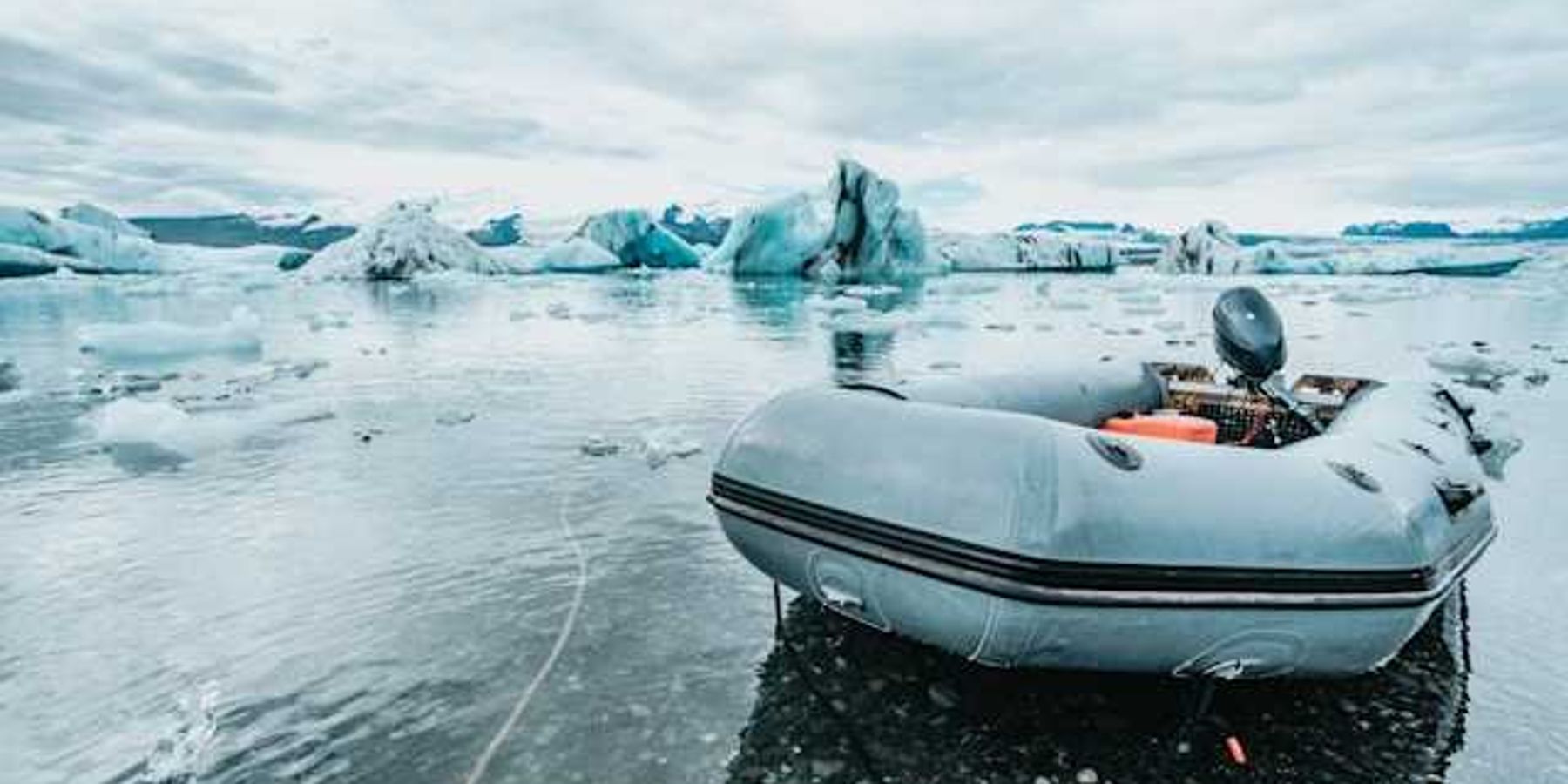europe
Campaigners take EU to court over weak climate targets
Environmental groups are suing the EU, arguing that its 2030 climate targets for key sectors, including agriculture and transport, are insufficient to meet global climate goals.
In short:
- The lawsuit challenges the EU's emission limits for sectors responsible for over half of its greenhouse gas emissions.
- The plaintiffs claim these targets are not aligned with the best available science or the Paris agreement’s 1.5C warming limit.
- The case has been fast-tracked, with an oral hearing expected in 2025.
Key quote:
“States are obliged to adopt science-based emissions targets consistent with limiting global warming to 1.5C.”
— Gerry Liston, senior lawyer with GLAN
Why this matters:
Weak climate targets could undermine global efforts to prevent severe climate change impacts. The outcome of this case may set a precedent for stronger environmental policies across Europe.
Related EHN coverage:
Heat-related deaths in Europe could triple by 2100 due to climate change
Heat-related deaths in Europe may triple by the century's end, with southern countries like Spain, Italy and Greece facing the greatest impact, a new study warns.
In short:
- If global temperatures rise by 3C to 4C, heat-related deaths in Europe could far exceed the decrease in cold-related deaths.
- The study predicts an increase from 44,000 to 129,000 heat deaths annually by 2100 if temperatures rise significantly.
- Southern Europe, with an aging population, is most at risk from rising temperatures.
Key quote:
“Many more heat-related deaths are expected to occur as the climate warms and populations age, while deaths from cold decline only slightly.”
— David García-León, Joint Research Centre at the European Commission
Why this matters:
With Europe already experiencing record heatwaves, the study highlights the urgent need to address climate change. As the climate warms, vulnerable populations will face greater health risks, stressing public health systems.
For more:
European heatwaves in 2023 led to nearly 50,000 deaths due to carbon pollution
New research reveals that carbon pollution and escalating heatwaves caused about 50,000 deaths in Europe in 2023, as the continent warms faster than the global average.
In short:
- The study published in Nature Medicine highlights the devastating impact of heatwaves in Europe, with nearly 50,000 heat-related deaths in 2023, primarily in southern countries like Greece, Italy and Spain.
- Although adaptation measures have helped reduce mortality rates by 80% compared to two decades ago, the number of deaths remains alarmingly high due to rapid warming and increasing heatwaves.
- Scientists emphasize the importance of urban planning, early warning systems and public health measures to mitigate heat risks, alongside individual actions such as staying hydrated and checking on vulnerable individuals.
Key quote:
“Europe is warming at twice the rate of the global average – we can’t rest on our laurels.”
— Elisa Gallo, environmental epidemiologist at ISGlobal and lead author of the study.
Why this matters:
As Europe continues to warm at twice the global average rate, increasing heatwaves pose severe health risks. Effective adaptation strategies and public awareness are critical to preventing future heat-related fatalities.
Trump's push for fossil fuels could clash with Europe's green transition
As the U.S. boosts fossil fuel deals under Trump and Biden, Europe's shift to renewables risks reducing demand for American gas.
In short:
- Donald Trump and Joe Biden are both promoting U.S. fossil fuel exports, but Europe's decreasing gas demand could undermine these plans.
- Europe's commitment to reducing emissions has led to a significant drop in gas usage, with a shift towards renewable energy.
- U.S. companies, expecting a decline in European demand, are pivoting towards Asia for future gas and LNG markets.
Key quote:
"We expect that demand for natural gas is going to continue declining at pace. Given we have these climate commitments, the expectation is that demand will be lower by 2030, even lower by 2040, with the effect that there is no long-term gas demand in Europe."
— Georg Zachmann, senior fellow at economics think tank Bruegel
Why this matters:
The clash between U.S. fossil fuel ambitions and Europe's renewable energy goals could lead to oversupply and economic repercussions. As Europe reduces gas dependency, American companies will need to adapt to changing global energy demands.
European election results could hinder ambitious climate policies
Recent gains by far-right parties in the European Parliament elections may obstruct efforts to implement more ambitious climate policies, though key net-zero commitments are expected to persist.
In short:
- The European Green Party suffered significant losses, while far-right parties made substantial gains in the recent European Parliament elections.
- Voter concerns about the cost-of-living crisis and geopolitical tensions have taken precedence over climate change, impacting election outcomes.
- Despite the political shift, researchers believe core climate goals like the European Green Deal are likely to remain intact.
Key quote:
"I don't think that there is going to be appetite to completely ditch the Green Deal."
— Richard Klein, Stockholm Environment Institute
Why this matters:
The shift in political power within the European Parliament may slow the advancement of stronger climate initiatives, affecting long-term environmental targets. Understanding these changes is important, as they may influence the EU's approach to climate policy and international environmental leadership.
Ursula von der Leyen's Green Deal struggles amid election campaign
Facing an election and multiple crises, Ursula von der Leyen has downplayed her Green Deal achievements to appease various factions within the EU.
In short:
- Ursula von der Leyen, European Commission president, has minimized her climate agenda amid electoral pressures.
- Manfred Weber and the EPP have heavily opposed her Green Deal, reflecting broader conservative dissatisfaction.
- Interviews reveal von der Leyen's covert efforts to advance her climate policies despite public concessions.
Key quote:
"If a leader is playing both sides — something that we are experiencing now — you have a problem."
— Teresa Ribera, Spanish Deputy Prime Minister
Why this matters:
Von der Leyen's maneuvers highlight the political challenges of sustaining ambitious climate policies in the face of economic and electoral pressures. The future of the EU's climate agenda may hinge on the upcoming election and von der Leyen's ability to navigate internal party conflicts. Critics, however, warn that de-emphasizing the Green Deal could jeopardize the EU's leadership role in global climate action.
Green parties in Europe facing potential setbacks in upcoming elections
As the European elections approach, Green parties may lose up to a third of their seats due to shifting voter priorities toward issues like inflation and the Ukraine war.
In short:
- Polls indicate a significant drop in support for Green parties in the upcoming European elections, potentially costing them up to one-third of their seats.
- The decline is attributed to voters prioritizing concerns like inflation and the Ukraine war over environmental issues.
- Economic conditions heavily influence support for Green parties, with a tendency to favor them during times of economic prosperity.
Key quote:
“Voters have other priorities in 2024. Europeans today are more concerned about other issues.”
— António Valentim, political scientist at Yale University
Why this matters:
In recent years, Green parties have surged in popularity across Europe, riding a wave of growing public awareness about climate change and sustainability. However, the urgency of immediate economic and geopolitical crises is reshaping voter priorities. The soaring cost of living, driven by inflation, and the ongoing conflict in Ukraine have captured the attention and anxiety of the electorate, potentially at the expense of environmental policies. With that said, some other parties have adopted strong environmental targets, suggesting that climate action may still progress despite lower Green representation.









